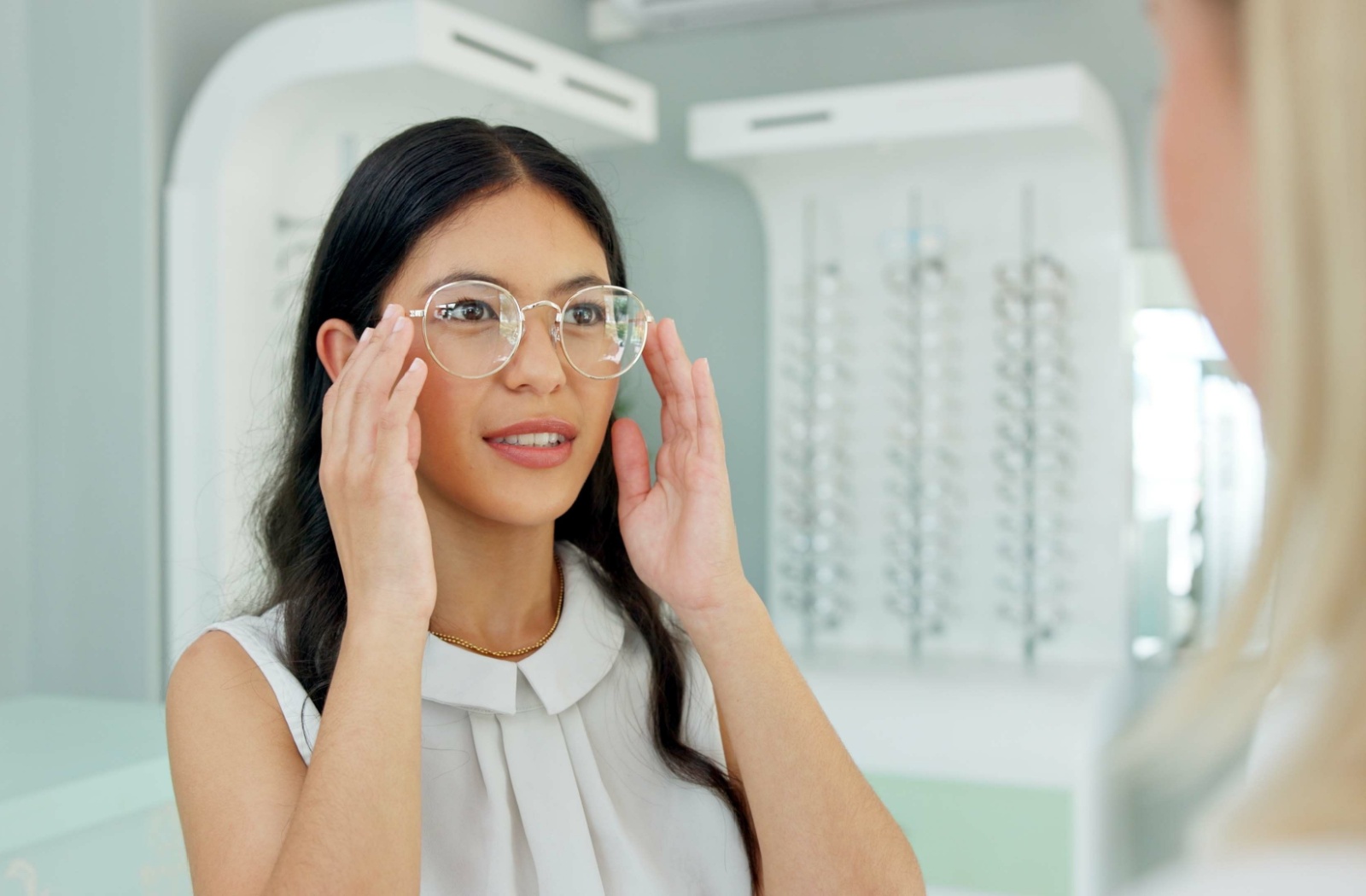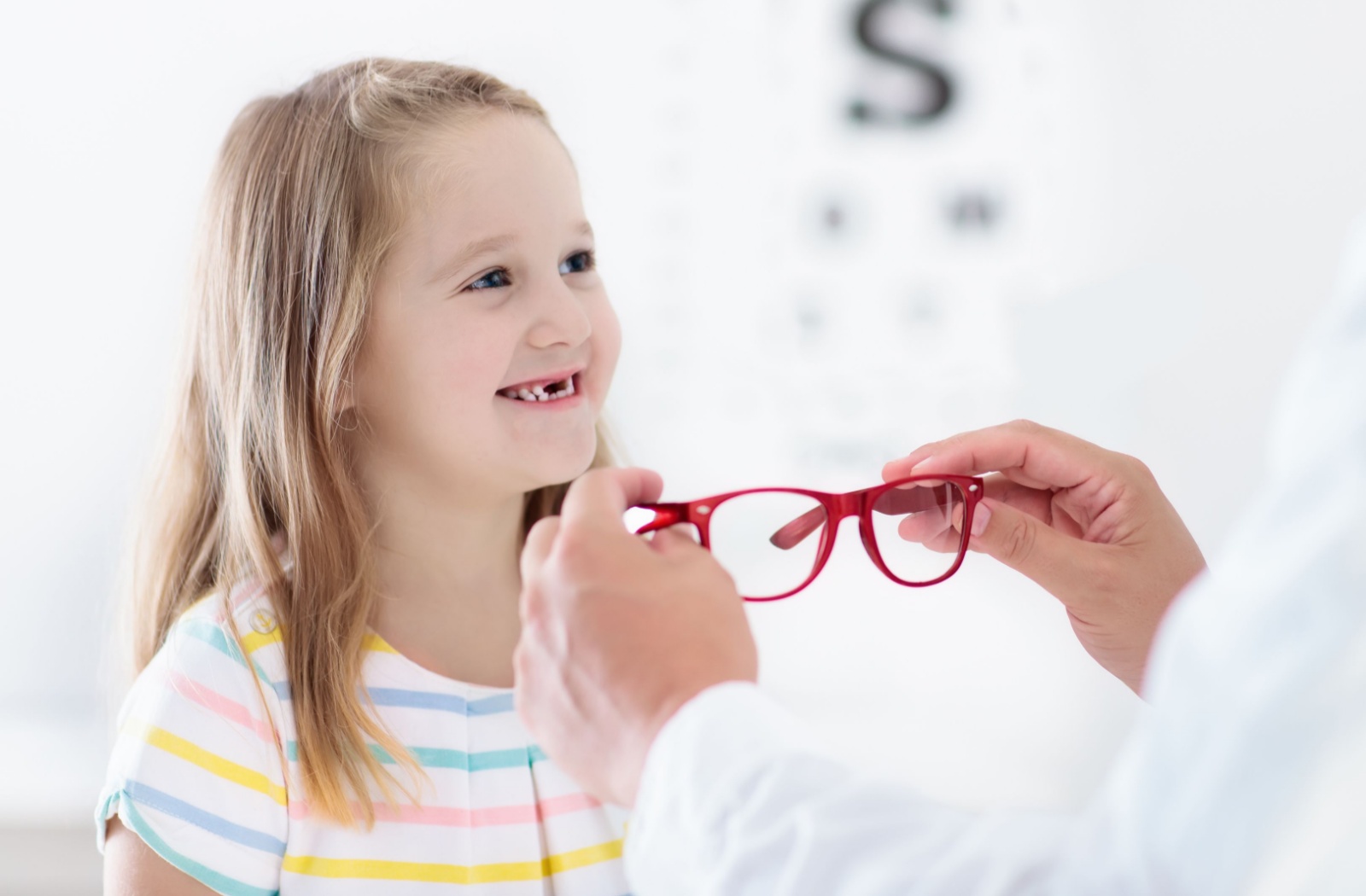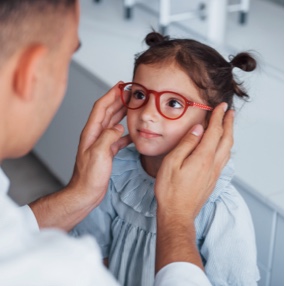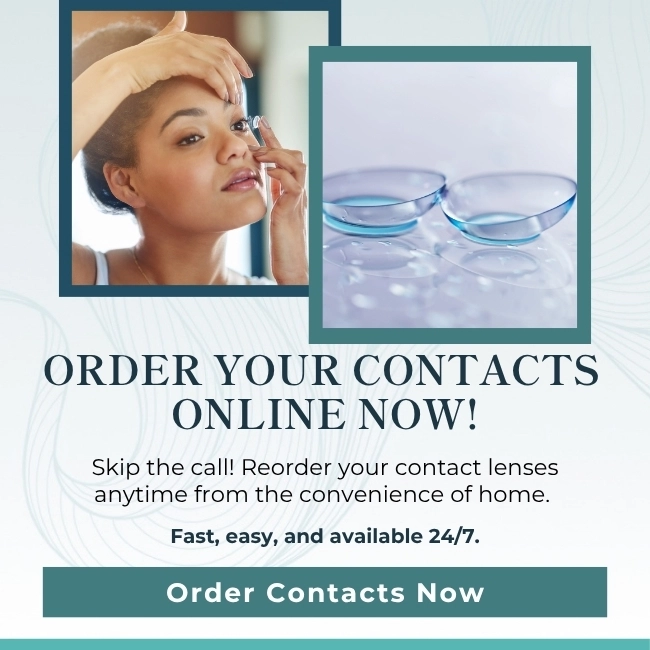Many vision issues develop slowly, so it’s possible to miss them at first. You might mistake frequent headaches or tired eyes as a normal part of your busy life as a student or parent. These experiences, however, can be your eyes asking for support from our eye care team.
The most reliable way to tell if you need glasses is through a comprehensive eye exam. This evaluation can provide a complete picture of your vision and eye health, going far beyond a simple screening. An eye exam can help identify the cause of your symptoms and find the right solution for you.
Everyday Signs Your Eyes May Need Support
Your eyes can send small hints when they need a little help. You may notice small changes in your daily routine that can signal the need for glasses.
Noticeable Changes in Your Vision
Changes in how clearly you see objects, both near and far, are some of the more direct signs that you may need glasses. These shifts can include things like:
- Vision that is blurry or fuzzy at any distance
- Trouble seeing clearly at night, especially while driving
- Seeing halos or glares around lights
- Objects appear doubled
How Your Body Reacts
Sometimes, your body shows physical signs of eye strain before you notice a change in your vision. These reactions are your body’s way of telling you that your eyes are working too hard. Look out for these physical symptoms:
- Frequent headaches, especially after focusing on a screen or a book
- A feeling of eye fatigue or strain
- Squinting often to see things more clearly
- Holding books, menus, or other reading material farther away to see the words
- Rubbing your eyes a lot
“Perfect” Vision Isn’t the Whole Story
You might think having an optometrist tell you that you have 20/20 vision means you don’t need glasses. However, a score of 20/20 only measures how sharp your vision is at a distance. It doesn’t tell the whole story about your eye health or how comfortably you see.
Eye Strain and Focus Issues
Even with clear distance vision, you can still experience eye strain, especially if you have a condition like astigmatism. Your eye muscles might have to work extra hard to maintain focus, which can cause discomfort. This can happen even when your vision seems sharp to you.
The Impact of Digital Screens
Hours spent looking at computers, phones, and tablets can be tough on your eyes. The constant refocusing on pixelated text can lead to tired, sore eyes, even if your sight is otherwise fine. Practicing the 20-20-20 rule can help, but sometimes glasses with special coatings or tints are helpful to reduce digital eye strain.
Vision Changes Through University and Family Life
Your vision needs can change throughout different stages of your life. The unique demands of being a university student or a busy parent can often be the first time you notice these shifts.
For University Students
Long hours of reading textbooks, watching lectures, and working on a laptop can reveal small issues with your eyes that you never knew you had. One of the toughest parts is that these symptoms can be easily mistaken for study fatigue. If you get headaches during study sessions, long lectures, or after reading a textbook, it might be a sign that your eyes need support.

For Young Parents
Life as a parent is busy, and it can bring new visual challenges. Your daily tasks change, from driving at night to managing schedules on a small screen. It is also important to remember that children’s eye exams are key to monitoring their development, as good vision is essential for learning. Recognizing these shifts for you or your loved one could mean it’s time for an eye exam.
What Happens During an Eye Exam
The only way to know for sure if you need glasses is to have an eye exam. It’s a simple, straightforward process that does more than just check your vision.
A Check on Your Eye Health
An optometrist can also look at the overall health of your eyes during an exam. There are some eye diseases that can start without any obvious symptoms. This check, which may include a dilated eye exam to see the back of your eye, is a key part of your general wellness.
Find Your Unique Prescription
If you do need glasses, your optometrist can determine your exact prescription. They may talk to you about your daily activities, like your work, hobbies, and screen time. This helps them recommend the right type of lenses for your specific lifestyle.
Your Prescription for Glasses and Contact Lenses Are Different
Once you have a prescription, it’s important to know that one for glasses is not the same as one for contact lenses. They are designed for different purposes, and each requires a separate evaluation and fitting process.
Why the Distance from Your Eye Matters
Glasses sit about 12 millimetres away from your eyes, while contact lenses rest directly on the surface of your eyes. This difference in distance changes the lens power required to correct your vision properly. For this reason, each needs its own specific prescription to work correctly.
Different Measurements for a Different Fit
A contact lens prescription includes extra information that is not on a glasses prescription. These details make sure the lenses fit your eyes correctly, safely, and comfortably. Following proper wear and care recommendations is important for both your vision and your eye health.
- Glasses prescription: Includes lens power, astigmatism correction, and axis
- Contact lens prescription: Includes all of the above, plus the base curve, diameter, and specific brand of lens
Your Next Step
Taking care of your vision is one simple step toward improving your daily comfort and focus. Whether you’re a student preparing for exams or a parent navigating a busy schedule, clear vision can make a big difference. An eye exam is one of the first steps to get the answers and support you may need. At Clarity Optometry & Vision Care, we’re here to help you understand your unique vision needs. We provide care that’s tailored to every stage of life in the Guelph community. Book your appointment with us today to take the next step toward clear and comfortable vision.

























